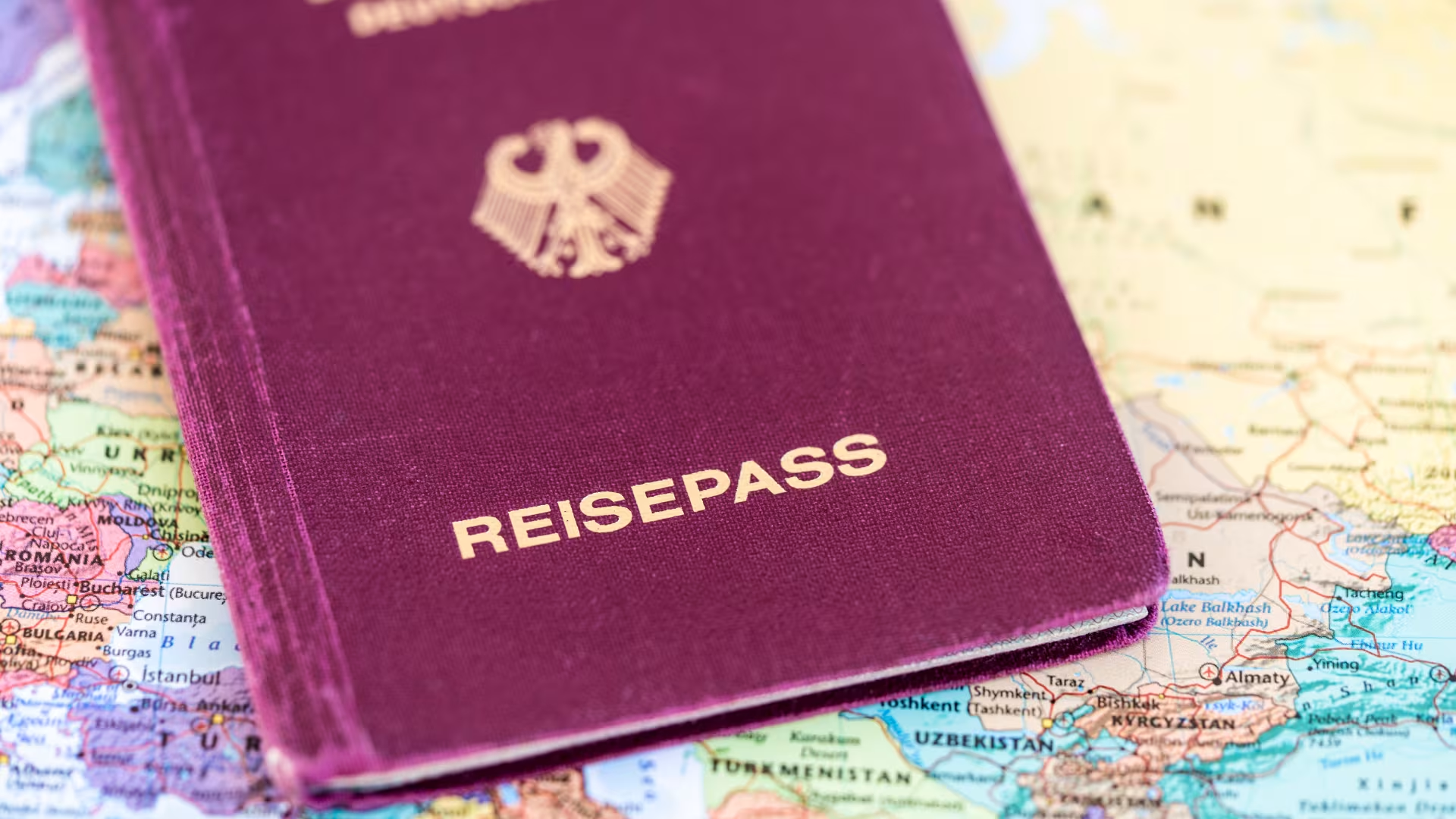
On the 19th of January 2024, the German Bundestag passed a landmark reform to its citizenship law. The new law significantly eases the path to both naturalisation and dual citizenship in Germany. It opens up exciting new opportunities for many internationals residing in the country. The dual citizenship law officially came into effect on the 27th of June 2024.
This marks a historical shift from Germany’s previous stance on dual citizenship, making it much easier for millions of residents to fully integrate into German society and participate in its democracy.
Does Germany Allow Dual Citizenship?
Yes! The most exciting part of the new immigration laws for most internationals is the acceptance of dual citizenship. Previously, individuals acquiring German citizenship were generally required to renounce their existing nationality.
Shorter Residency Requirement
Until now, you needed 8 years of legal residency in Germany to apply for citizenship. This has now been lowered to 5 years for most individuals. For internationals with “special integration achievements,” such as exceptional language skills (at C1 level) or voluntary work, the wait can be even shorter at 3 years.
2025 update: The new German government, consisting of CDU/CSU and SPD, will abolish the 3-year “fast-track” citizenship for well-integrated internationals. However, it remains possible to receive German citizenship after 5 years of living in Germany.
Automatic Citizenship for Children
The new citizenship reform extends its benefits beyond adults, offering exciting opportunities for children too. Children born in Germany to at least one German parent who has been a legal resident for 5 years will automatically receive German citizenship.
This remains the case even if the other parent is not a German citizen. This simplifies the process for families with mixed nationalities and fosters a sense of belonging from an early age.
Benefits of Dual Citizenship in Germany
Dual citizenship opens doors to many legal, professional, and personal opportunities. It allows internationals to feel fully integrated in Germany without giving up their original nationality.

Right to Vote
If you plan to settle in Germany, build a career and even raise a family, you will find it important to have a say in decisions that impact your daily life, career and surrounding.
Dual citizenship empowers you to actively participate in German democracy. You gain the right to vote in local, state, and national elections, shaping the future of your new home country. This allows you to actively shape the country you have chosen to call home.
Visa-Free Travel
The German passport is the second strongest passport globally. Having German citizenship unlocks visa-free travel to over 190 countries, including all EU member states. This translates to seamless travel opportunities all over the world, opening doors to exciting personal and professional journeys.
Employment and Education Opportunities
With dual citizenship, you are in a better position to live, work, and study in any of the EU member states without extra immigration restrictions. This expands your career options significantly, allowing you to pursue professional opportunities across Europe.
Family Benefits
As mentioned above, if you have children, they automatically inherit your German citizenship under the new law, simplifying future family travel plans as well as education planning.
Cultural Connection
Dual citizenship allows you to maintain strong cultural and familial ties to both your German and existing nationality. You can participate in cultural events, traditions, and family gatherings in both countries, preserving your cultural heritage.
Additionally, as you do not have to renounce your existing nationality, you are able to visit your home country without any immigration hurdles.
Other Benefits of Dual Citizenship
Additional benefits may include easier property ownership in Germany while also being able to invest in property in your country of origin. Furthermore, being a German citizen has a great advantage if you plan to start a business in Germany compared to as a resident.
Please note that these are just some of the potential benefits of having dual citizenship in Germany. The specific advantages you experience will depend on your individual circumstances and goals.
Who is Eligible for Dual Citizenship in Germany?
Non-EU citizens who:
- have legally lived in Germany for 5 years
- meet the requirements for basic integration, such as language proficiency (at least B1 level) and familiarity with German culture (demonstrated by taking the naturalisation test).
- have not been convictedof serious crimes or do not have a criminal record.
Children born in Germany:
- to at least one German parent who has been a legal resident for 5 years.
Please be aware that this is only a general overview and individual circumstances may cause eligibility to vary. It is recommended to consult from your local immigration authority to verify your eligibility.
How Much Does It Cost to Apply for Dual Citizenship in Germany?
The application fee for dual citizenship in Germany is uniformly set across all federal states. An adult will need to pay €255, while a minor child who is naturalised with their parents pays €51. These fees apply nationwide, ensuring that the process remains consistent regardless of the applicant’s location.
What Are the Disadvantages of Dual Citizenship in Germany?
In some cases, individuals might be subject to the tax laws of both countries, leading to a more complex financial situation if appropriate treaties are not in place.
Additionally, if diplomatic interests diverge, issues with consular protection could arise, leaving dual citizens in a challenging position during international disputes or emergencies.
FAQs
Find answers to common questions about living in Germany.
Who qualifies for dual citizenship in Germany?
You qualify for dual citizenship in Germany if you have lived in the country for more than 5 years, speak German at B1 level or higher, can prove familiarity with German culture, are financially stable and have been contributing to the public pension insurance scheme.
What are the requirements for dual citizenship with Germany?
To get dual citizenship in Germany, you need to have legally lived in Germany for at least 5 years and contributed to the public pension fund, to have German language skills at B1 level, knowledge of the German social, legal and political system, and financial stability through employment or self-employment.
What are the disadvantages of dual citizenship in Germany?
The risks that come with getting dual citizenship in Germany include potentially having tax obligations in both countries as well as still having to do military service in your home country.
Is Germany going to allow dual citizenship?
Germany passed the reform to the citizenship law on the 19th of January 2024, allowing internationals to obtain dual citizenship. This new law came into effect on the 27th of June 2024.
Is German dual citizenship worth it?
Getting dual citizenship in Germany is absolutely worth it: it gives you the right to vote in Germany, access to the second strongest passport in the world and full integration to Germany, all while getting to keep your home country’s nationality.
How much does it cost to apply for dual citizenship in Germany?
Applying for dual citizenship in Germany will cost you €255 for an adult and €51 for minors applying for citizenship along with their parents.
How long does it take to get dual citizenship in Germany?
You can apply for dual citizenship in Germany after 5 years of legally living in the country. However, depending on your city of residence the processing of your application may take an additional year.
How do I apply for German citizenship by descent?
If your parent, grandparent or great-grandparent was born in Germany, you may be eligible to apply for German citizenship by descent. To do this, get in contact with the immigration authorities in your city.
Does the UK allow dual citizenship with Germany?
Yes, the UK allows dual citizenship with Germany, after Germany updated its citizenship laws in 2024. This means you can hold both German and British citizenship.
Do I need to speak German for dual citizenship?
Yes, to get German citizenship you need to show proof of German language proficiency at B1 level or higher.
Can US citizens have dual citizenship with Germany?
Yes, US citizens can also have dual citizenship with Germany after the new citizenship law reform took effect in June 2024.
Get Your Visa-Ready Package
Start your journey to Germany with our all-in-one visa solution tailored for your needs.
More About Living in Germany
From seasonal weather patterns to festive traditions - everything you need to know about life in Germany




